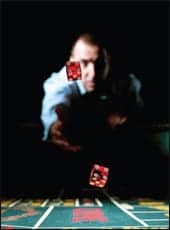Restless Leg Syndrome Medication Gambling
Side effects are a necessary evil when it comes to medication. Virtually any active medicine will have additional physical effects alongside the intended action of the substance, and these are usually relatively minor.
Pramipexole is the only dopamine agonist currently PBS listed for treating the symptoms of restless legs syndrome. It may be useful if frequent symptoms severely affect a patient's quality of life and non-drug measures prove ineffective. Modest symptomatic benefits need to be weighed against common adverse effects, as well as the possibility of sleep attacks or other less common serious problems. Mild restless legs syndrome that isn't linked to an underlying health condition can be managed with just a few lifestyle changes. If symptoms are more severe, medication may be needed. Restless legs syndrome caused by an underlying health condition can often be cured by treating that condition.

Restless Leg Syndrome Medication Gabapentin
Physical side effects are usually tolerable, or may be managed using over-the-counter medicines or changes in lifestyle.
However, sometimes the side effects of a drug can be damaging in a non-physical sense. In fact, pramipexole—a drug used for restless leg syndrome and Parkinson’s disease—may actually lead to hypersexuality or even compulsive gambling. The link has been previously documented, but the information hasn’t been disseminated widely enough to protect patients from the unintended effects.
How Pramipexole Ruined A Patient’s Life
Tuscaloosa News’ People’s Pharmacy segment gives citizens a chance to share their experience with medicines and have their problems addressed by an expert. Last month, the section received a question from a patient suffering from restless leg syndrome who also found him or herself compulsively shopping and gambling. The individual commented “This medication has ruined my life. I discovered only recently that the compulsive behaviors are drug side effects,” and drew attention to the fact that the symptoms of the original condition were getting worse, if anything.


In response, the expert shared additional stories from other patients with the same problem. Although pramipexole (brand name Mirapex) is the most well-known cause, other similar drugs such as ropinirole (Requip) can also lead to impulsive behavior.
How Pramipexole Leads to Compulsive Behaviors
Pramipexole is a dopamine-agonist drug, and many people will know that dopamine is the neurotransmitter implicated in most cases of addiction. It’s the brain’s “reward” chemical, but people suffering from Parkinson’s disease are deficient in it. A dopamine agonist basically tops up the body’s dopamine supply (albeit in a synthetic form), so for that reason alone there is reason to be concerned about its potential relationship with addictive behavior. The dosage for restless leg syndrome is much lower than that for Parkinson’s, so it’s expected that those taking the drug for Parkinson’s are at greater risk of compulsive behaviors.
Because of the link between pramipexole and the body’s dopamine system, the drug appears to have an impact on behavior. Patients who take the drug often report compulsive shopping, gambling, eating and sexual activity, which can understandably create many problems for the individual.
Restless Leg Syndrome Medication Gambling Treatment
A Known Connection
Many studies have been conducted on the link between compulsive behavior and dopamine agonists, with the results showing that “impulse control disorders” are more common in both patients with Parkinson’s and restless leg syndrome who are receiving the drugs. A particularly large piece of research concluded that patients taking dopamine agonists are between two and three and a half times more likely to develop an impulse control disorder than those not taking them. The link isn’t fully understood, but it appears that the lower doses used in restless leg syndrome don’t remove the risk of developing compulsive behavior.
The role of the pharmaceutical companies has been questioned, with many high-profile lawsuits being filed related to the damaging side effects. According to some of these reports, the pharmaceutical companies were aware of the links between the drug and the conditions since the 1990s (when the link was revealed by a clinical trial), but they failed to take action to investigate the possibility further.
Additionally, the companies engaged in a marketing campaign targeted at physicians, which misrepresented the potential risks of the drugs. None of this type of behavior is particularly out of character for pharmaceutical companies—who are primarily concerned with selling pills, with serious side effects merely serving as a barrier to that goal—and the fact that the warning labels weren’t updated until 2005 shows the consequences this can have. The companies are now being ordered to make large payouts to account for the damages the drugs have caused.
What Should Patients Do?
If you’re a patient taking a dopamine agonist like pramipexole, the options are unfortunately limited. It’s worth noting that the incidence of these side effects is quite low, but there is still a chance you’ll develop them. If you’re experiencing symptoms of compulsive behavior after starting on a dopamine agonist, the best thing to do is to contact your doctor about it as soon as possible. Compulsive gambling, sex and shopping all have the potential to financially ruin patients or obliterate romantic relationships, so the importance of reducing their impact can’t be overstated. In the event of negative consequences, your physician may be able to suggest an alternative treatment. Do what you can to better your health!
Tired of addiction calling the shots?
Addiction treatment changes lives. Call for a free benefits check.
- 877-671-1785
Brought to you by